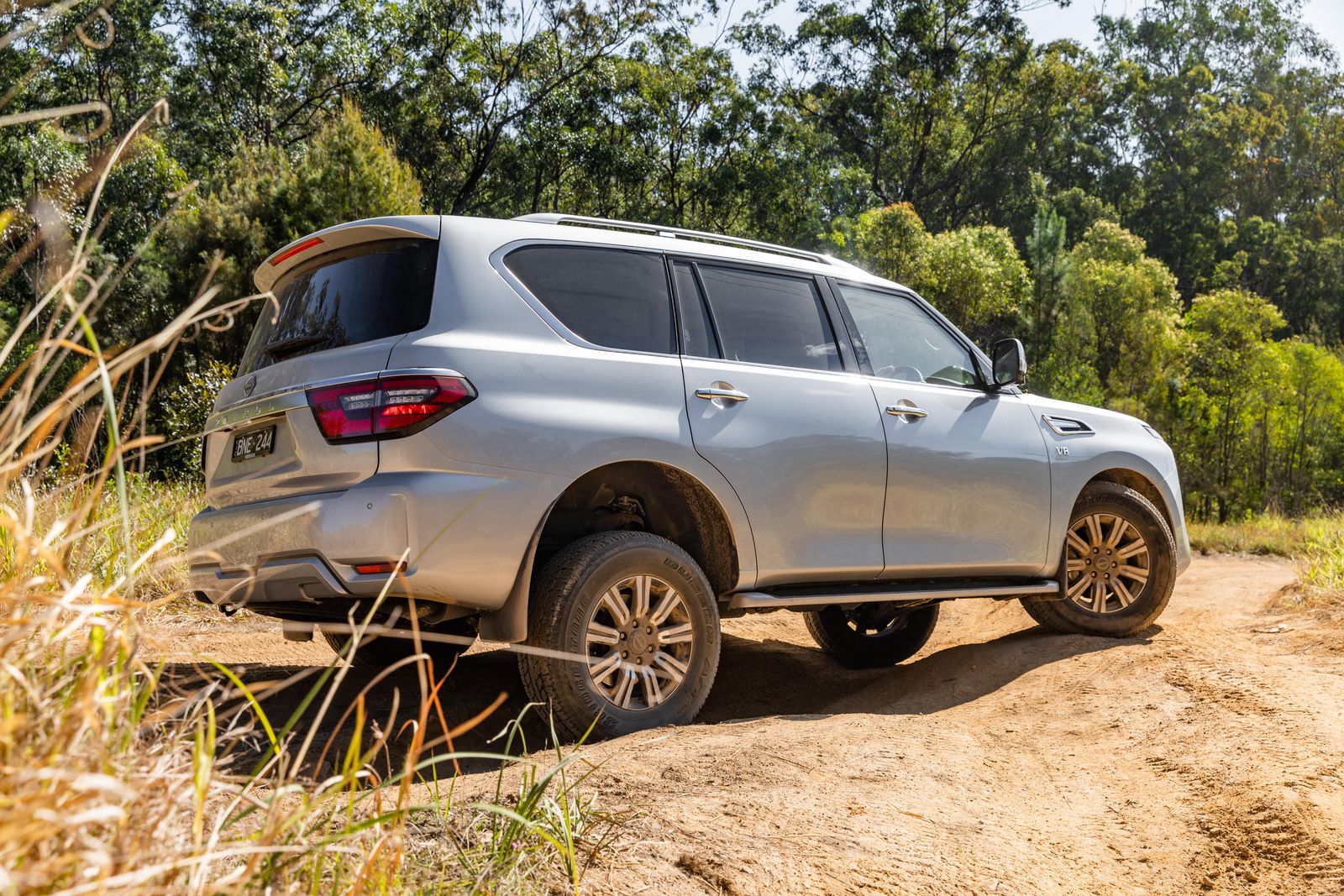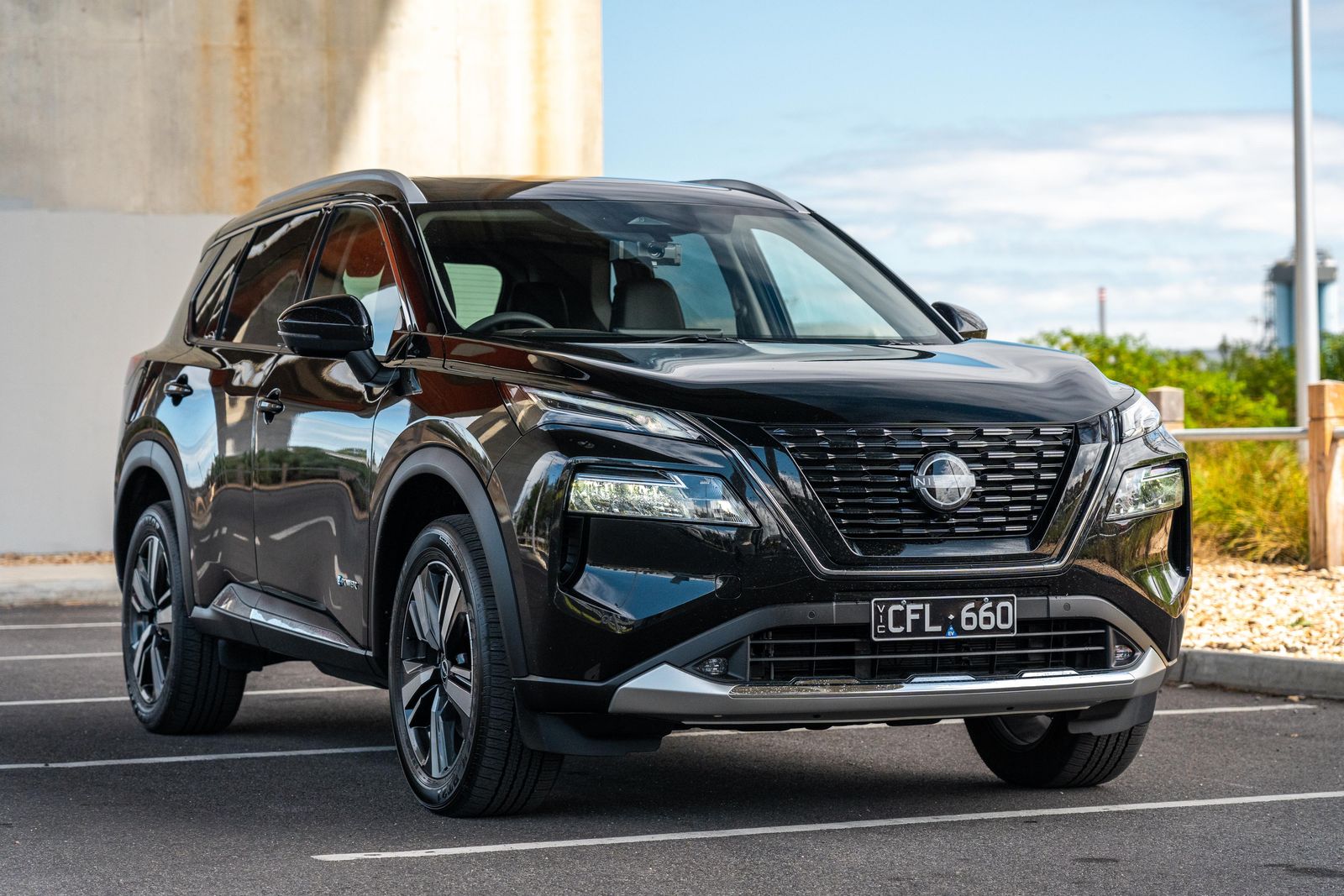Nissan’s largest vehicles could be getting thrifty hybrid technology.
As Nissan’s e-Power hybrid technology continues to proliferate throughout its line-up, the company has confirmed work is underway to deploy it in its largest vehicles.
While executives wouldn’t be drawn on what specific products the technology will be filtered to, they indicated what types of vehicles could offer the hybrid setup.
“The technology itself is applicable for larger SUVs or commercial applications, and technical development is going on,” said Shunichi Inamajima, vice president for powertrain and EV engineering.
“e-Power is also applicable for not just big SUVs like Patrol or something, but also it is applicable for commercial applications like commercial vans or commercial trucks.
“It really depends on the customer needs or market request. We’re looking at the regional request, for instance the infrastructure or fuel pricing, et cetera. So we’ll consider technical application to the products, either it’s e-Power or EV.”
Whether the mention of commercial vehicles suggests a ute application is unclear, but electrified offerings are starting to appear in this segment.
GWM is launching a hybrid ute this year, Toyota is set to introduce its full-sized hybrid Tundra locally, and both Ford and Mitsubishi are understood to be working on plug-in hybrid versions of the Ranger and Triton, respectively.
The next Nissan Navara will share its underpinnings with the next Triton, though we’ve seen Renault-Nissan-Mitsubishi Alliance platforms feature multiple types of electrification.
The CMF-C-based Mitsubishi Outlander, for example, offers a plug-in hybrid while its Nissan X-Trail cousin offers e-Power tech.
Nissan has previously indicated it will make its e-Power technology available to its Alliance partners Mitsubishi and Renault.
The brand first introduced e-Power technology in the Japanese-market Note in 2016, and has since rolled it out to the Kicks crossover, Serena people mover, and Sylphy sedan.
It plans to introduce eight more hybrid models by 2030, alongside 19 full electric vehicles.
The X-Trail is the first e-Power vehicle to be offered locally. Using the e-Power with e-4orce moniker, the electrified crossover features 150kW/330Nm front and 100kW/195Nm rear electric motors.
Total system output is 157kW, with claimed fuel economy of 6.1 litres per 100km.
The smaller Qashqai e-Power, due later this year, is front-wheel drive and features a single 140kW/330Nm electric motor. European WLTP combined cycle fuel economy is a claimed 5.3 litres per 100km.
Both Qashqai and X-Trail e-Power models feature a variable-compression ratio turbocharged 1.5-litre three-cylinder engine that serves as a generator instead of driving the wheels.
Nissan has confirmed it’s aiming for price parity between its e-Power and full-electric vehicles by 2026.
It says that by sharing modular components between its EVs and e-Power vehicles, it can reduce powertrain costs by approximately 30 per cent compared with 2019.
Earlier today it revealed two prototype powertrains featuring this modular approach.
The 3-in-1 prototype, with a modular electric motor, inverter and reducer, is planned for use in EVs, while the 5-in-1 prototype is set for use in hybrid e-Power vehicles.





